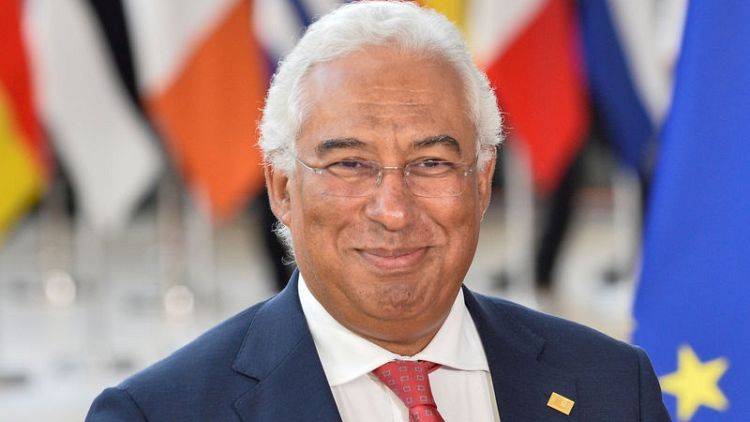LISBON (Reuters) - Portugal's Prime Minister Antonio Costa has ruled out a coalition government with the hard left if, as expected, his governing Socialist Party wins an Oct. 6 election but falls shy of a parliamentary majority.
Opinion polls show the Socialists, who currently rely on support from the two far-left parties in parliament to pass legislation, winning about 37-38% of the vote, meaning they would still need the support of one other party to govern.
But Costa indicated he favoured a continuation of the current pact in parliament with one or two of the far-left parties - the Communists and the Left Bloc - rather than any formal coalition in which they would have government ministers.
"It's best not to ruin a good friendship with a bad marriage," Costa told the TVI channel on Wednesday night. "It's not a good idea to try to complicate our political life when we already have risk scenarios abroad."
"The country needs to maintain stability and good policies. One of the keys to stability in the last legislature was each party keeping its identity. Had we had a formal coalition, the solution would have been much less stable," he added.
After the last parliamentary election in 2015, in which the centre-right Social Democrats won the most votes, Costa forged an unprecedented alliance for parliamentary support with the far left parties to snatch the premiership from his predecessor.
His government has received praise from the European Union and investors for combining fiscal discipline with economic growth and a reversal of some austerity measures applied under Portugal's 2011-14 international bailout.
In neighbouring Spain, caretaker Socialist premier Pedro Sanchez has sought a "Portuguese-style" pact in parliament with the left to end a four-month political stalemate since an inconclusive election in April.
Portugal's Socialists command a strong lead in opinion polls but would need to win around 42% of the vote in order to win a big enough majority to govern alone.
Since the last election, a potential new kingmaker has emerged, the People-Animals-Nature party (PAN), which recently won a seat in the European Parliament and, according to some polls, could take 4% of the vote in the Oct. 6 election.
(Reporting By Andrei Khalip; Editing by Gareth Jones)
